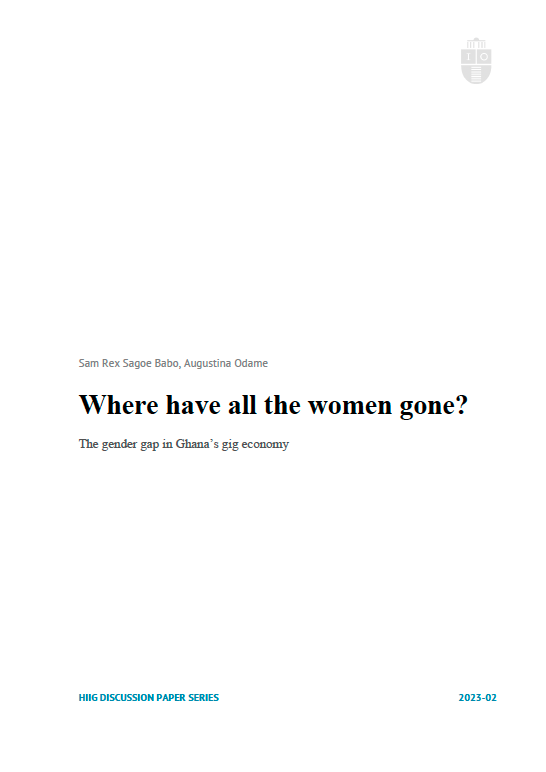The Ghanaian tech industry clearly shows a noticeable gap between men and women, where men outnumber women by a ratio of 80 to 20 (Digital Times Africa, 2021). As such, the participation of men in the gig economy in Ghana relative to that of women calls for an inquiry. Hence, this paper concentrates on identifying the various challenges preventing women from participating in the gig economy in Ghana leading to gender disparities. A qualitative approach with an exploratory research design was used to conduct this study, and a thematic approach to data analysis was adopted to provide an in-depth understanding. Some challenges identified were social and cultural expectations, and insecurities. One of the significant recommendations is to address cultural stereotypes from the grassroots by engaging traditional leaders and rulers in promoting women's participation in ICT jobs. It is noted that the involvement of women in the gig economy can have beneficial impact on social mobility, productivity, gender equality, job generation, work-life balance, and economic empowerment in Ghana.

